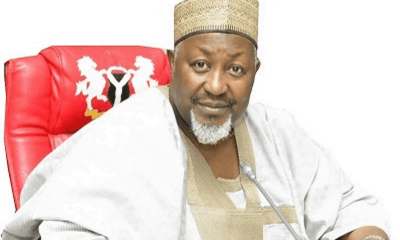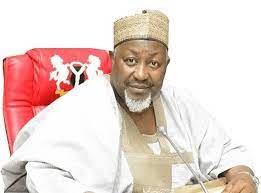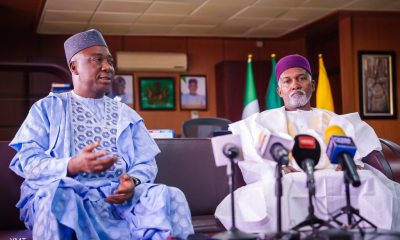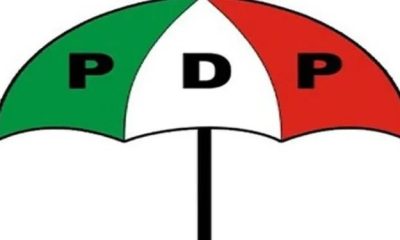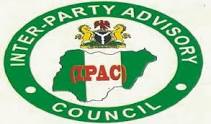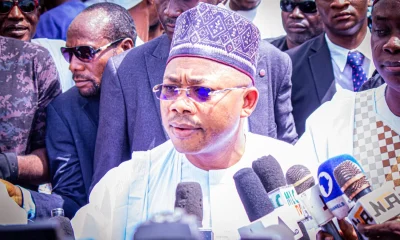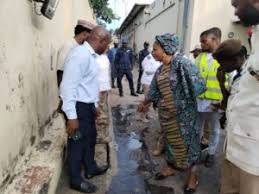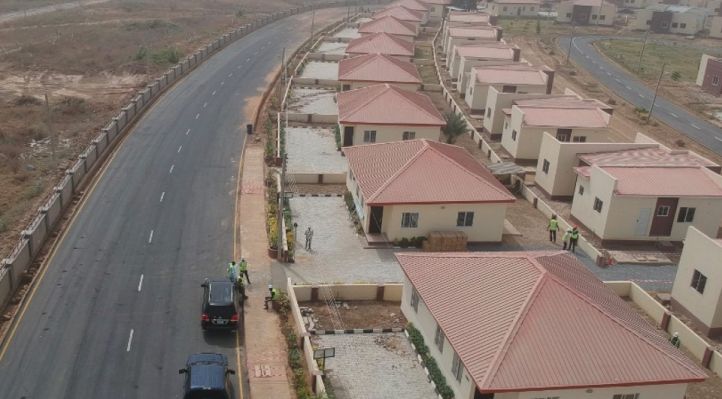Oil & Gas
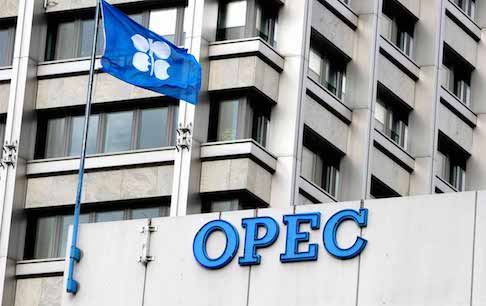
OPEC Hails Sylva’s Appointment as Minister of State, Petroleum
The Secretary General of the Organisation of Petroleum Exporting Countries (OPEC), Mr Mohammad Barkindo, has congratulated Mr Timipre Sylva on his appointment as Nigeria’s Minister of State for Petroleum Resources.
Barkindo disclosed this in a statement issued on Wednesday.
He described the newly-appointed minister is a veteran of the oil industry in Nigeria, where he served as adviser to former Petroleum Minister, His Royal Highness, Dr Edmond Dakouru.
“He will bring his rich experience to bear on his new and heavy responsibilities.
“OPEC looks forward to working with him to advance the implementation of the historic Declaration of Cooperation and Charter of Cooperation,” he said.
It will be recalled that Slyva contributed profoundly to the institution of the Amnesty programme in the Niger Delta region which, over time, has led to restoration of peace in the oil producing areas of Nigeria.
News Agency of Nigeria (NAN) reports that Sylva from Bayelsa State was born July 7, 1964.
He holds a Bachelor’s degree in English Language and Linguistics from the University of Port Harcourt in 1986.
He began his working career with National Minority Business Council as Executive Secretary before his foray into politics and subsequent election into Rivers State House of Assembly in 1991.
He was elected Governor of Bayelsa in 2007.
Before his nomination as Minister he was Chairman, Governing Board of Oil and Gas Free Zone Authority.(NAN)
Oil & Gas
FG Inaugurates Committee to Enhance Gas Distribution in Urban Buildings

The Ministry of Petroleum Resources has inaugurated a Technical Working Group to enhance gas reticulation practices in Nigeria’s building industry.
The ministry’s Permanent Secretary, Amb. Nicholas Ella inaugurated the Technical Working Group (TWG) between the National Gas Expansion Programme (NGEP) and the Council of Registered Builders of Nigeria (CORBON) on Wednesday.
Reports= says that reticulation refers to the process of creating a network of pipes or tubes to distribute gas or other utilities to buildings or industrial sites.
The permanent secretary restated the importance of creating energy smart cities, saying that modern urban development relies on efficient gas and utility distribution systems,
“Most modern cities in developed countries have evolved to energy smart cities where energy, specifically gas and other utilities are piped to districts and estates.
“However, one of the key tools in creating energy smart city is the National Building
Code which, in essence, sets the guidelines on Building Pre-design, designs, construction and post-construction stages,” he said.
The permanent secretary reiterated the benefits of reticulated gas systems for households and businesses alike, adding that it ensured metered supply akin to water and electricity,
According to him, it eliminates the need for cumbersome refills, and also enhances safety by burying pipes and incorporating advanced safety equipments.
“The TWG is tasked with designing a comprehensive policy to implement best practices for gas reticulation using LPG, PNG, and Bio-Gas across Nigeria’s building sector.
“Key responsibilities include reviewing the current National Building Code, examining global gas distribution systems, and proposing quality standards for materials used in gas installations,” he said.
The permanent secretary emphasised the need for rigorous safety protocols and guidelines to ensure the efficient and safe use of gas in construction.
He urged the group to prioritise environmental sustainability in its recommendations, adding that the group is expected to submit its report by Nov. 15.
Earlier, Mr Samson Opaliwah, the Chairman of CORBON. expressed the council’s commitment to collaborate with the group to ensure safe uptake of gas for use in houses and housing estates in Nigeria.
“I assure you of the williness of CORBON to leverage the expertise and resources at her disposal to ensure that steps are put in place for gas infrastructure in buildings and estates.
“The gas infrastructure will be safe, sustainable and world-class.
” Our collective efforts will yield clear, standardised guidelines for safe and effective gas systems in buildings, matched with a skilled workforce to meet growing demands in Nigeria,” he said. (NAN)
Oil & Gas
Utilise Oil, Gas Industry Report as Tool for Public Debate – NEITI

The Nigeria Extractive Industries Transparency Initiative (NEITI) has urged stakeholders to utilise its 2022/2023 oil and gas report for civic engagement, constructive dialogue, and public debate.
Executive Secretary of NEITI, Dr Orji Ogbonnaya Orji, made the call at the report’s public presentation on Thursday in Abuja.
The report was unveiled by Mr Ola Olukoyede, Chairman, Economic and Financial Crimes Commission (EFCC), alongside Sen.
George Akume, Secretary to the Government of the Federation and Chairman, NSWG, NEITI and other dignitaries.Orji emphasised the report’s significance in guiding policy, encouraging public debate, and improving governance in natural resource management.
He highlighted the report’s comprehensive data on revenues, governance structures, operations, and compliance within the oil and gas sector.
Speaking at the public presentation of the report, Akume reaffirmed the Federal Government’s commitment to transparency principles.
Olukoyede pledged to investigate the report’s findings and recommendations, noting that NEITI’s previous reports led to the recovery of over N1 billion.
The report is available on NEITI’s website, providing valuable insights into the sector’s performance and challenges.
The presentation was attended by Chairmen of National Assembly Committees, captains of industries, members of diplomatic missions, development partners, civil society organisations and the media. (NAN)
Business Analysis
A Peep Into Dangote’s Refinery, The World’s Engineering Wonder

By Cletus Akwaya
Call it Dangote Republic and you would not be wrong, for that is what it means in real sense.
The ultra-modern Dangote Refinery and Petrochemical complex located at the Lekki Free Trade Zone in Lagos is the World’s Engineering wonder.
A guided tour for top Media executives in the country by the President, Dangote Industries Group himself, Alhaji Aliko Dangote on July 14, provided a rare privilege and opportunity to appreciate the project that has emerged as the World’s largest single train petroleum refinery.
Dangote, the Kano-born business mogul and Africa’s richest man, whose vision for the industrial transformation of Nigeria led to the initiation of this project is certainly a fulfilled person, having accomplished such a gargantuan task in the spelt of just about 10 years.
The refinery, which is built and equipped with the latest technology in the industry. It is a behemoth sitting on a huge land space of 2, 735 hectares, approximately seven times, the size of Victoria Island, the octane section of Lagos, which has become the abode for the very rich in the nation’s commercial nerve – centre over the decades.
The land was provided by the Lagos state government after the payment of $100million dollars by the Dangote Group as cost of the land.
The edifice didn’t come easy as the engineers had to reclaim 65million cubic metres of sand through dredging of the Atlantic coastline to pave way for the construction of the refinery and its accompanying facilities especially the Jetty.
The Dangote refinery is not a stand-alone project as it has a coterie of associated industries and infrastructure making it a self-reliant complex.
For instance, the company has a fully developed port (jetty)for maritime operations for both in-take of crude and discharge of refined products. This perfectly compliments the huge pipeline network that lands into the Atlantic for intake of crude and loading of refined products to ships. Its Jetty, which stretches 9KM into the international waters in the Atlantic Ocean and 12.5 KM from the refinery is perhaps one of the most modern in the world built with sand piles that shield the final landing points from the violent oceanic waves, thus providing for safety and stability of ships, barges and oil tankers.
The complex is accessed by 200KM network of concrete under-lay and well asphalted road network to ease vehicular traffic. The refinery has its dedicated steam and power generation system with standby units to adequately support operations of the various plants in the complex.
It has successfully completed a 435 MW power generating plant for its operations. The power generated from this plant surpasses the entire distribution capacity of Ibadan Electricity Distribution company, which supplies electricity to five states of the Federation including Oyo, Osun, Ondo, Ekiti and Kwara.
The Dangote refinery with a capacity of 650,000 bpd of crude oil is designed to handle the crude from many of the African countries, the Middle East and the US light crude. Its petrochemical plant is designed to produce 77 different high-performance grades of polypropylene, which is the major raw material for numerous industries and other refineries. With a huge refining capacity, Alhaji Dangote said the products from the refinery company would easily meet 100 per cent the needs of Nigeria’s demand for gasoline, diesel, Petrol and Aviation Jet with 56 per cent surplus for export, from which the company projects to earn a princely $25billion per annum from 2025.
The company has facility to load 2,900 trucks with its various products in a day by land and millions of litres of products through the waters depending on where the orders come from. The $25million projected revenue in 2025 could translate to a huge relieve for the nation in dire need of foreign earnings to shore-up the value of the nation’s currency.
The associated industry, the Dangote Fertilizers Limited also situated in the complex utilises the raw materials from petrochemicals to produce different varieties of fertilzers especially Urea, NPK and Amonia grades of fertilizers. Apart from the local market, Dangote is already exporting its fertilizers to other countries including Mexico, a testament to its high quality that meets world standards.
This feta, the President of Dangote industries explained was possible because of the high quality, the company has opted to pursue. In between the refinery and the fertilizers complex lies a 50,000 housing estate, which provided accommodation for the construction workers at the time of construction especially during the COVID-19 lockdowns of 2020, when workers remained encamped on the project site to continue with the work.
What stands out the Dangote Refinery is perhaps not in its sheer size and capacity but in the fact that it is perhaps the only of such projects whose Engineering, Procurement and construction(EPC) was done directly by the company without engaging the world renowned refinery constriction companies like Technip Bechtel (USA)Technip (France)Aker Solutions (Norway)Chiyoda Corporation (Japan)SNC-Lavalin Group (Canada)J. Ray McDermott (USA)JGC Corporation (Japan)Hyundai Heavy Industries (South Korea)Foster Wheeler (USA) and Daelim Industrial Company (South Korea)
“The design of the refinery was handled by dozens of Engineers and technical experts assembled in India and Houston, Texas, USA to execute engineering designs of the refinery,” said Edwin Kumar, the Executive vice President, Oil and Gas for the Dangote Group who midwifed the birth of the refinery complex.
“We didn’t give out contracts to anybody, we bought every single bolt and equipment ourselves and had it shipped into the country,” Dangote explained to his guests.
Part of the equipment imported into the country was the procurement of over 3,000 cranes to handle the evacuation of huge consignments of machinery from the wharf and for subsequent installation at the construction site. The cranes have become an unusual assemblage of such equipment to be found in one place on the African continent.
If there was any doubt that Alhaji Aliko Dangote is Africa’s richest man, the successful completion of the refinery and petrochemical complex at the cost of about $20billion has further confirmed his status as Africa’s leading businessman and entrepreneur.
However, Dangote does not really accept that he is the richest man on the continent,
“When you are rich, you accumulate cash, but when you wealthy, you create wealth” he told the top Media executives on tour of the huge project, explaining that he would rather prefer to be referred to as a “Wealthy man.”
And consistent with his business philosophy, Dangote hinted of plans to list the refinery on the Nation’s stock exchange by the first quarter of 2025. His vision is to avail the public of 20 per cent of the shares so as to ensure participation by Nigerians and even international portfolio investors.
The refinery company and the entire of Dangote Group at the moment provides direct employment to about 20,000 Nigerians and much indirect jobs to Nigerians, making it the highest employer of labour outside the government.
Most interestingly, the highly technical operations of Dangote refinery is operated by over 70 per cent of local manpower who work in the refinery control, centre, the numerous production and quality control laboratories among others. Some of the staff who explained their tasks to the visiting media executives said they were graduates of Engineering and allied disciplines recruited mostly from Nigerian universities and trained in various institutions abroad for periods ranging from sixth months – one year to master refinery operations. Through this strategy, Dangote has ensured transfer of technology to thousands of Nigerian youths.
“We don’t know where they come from as long as they are Nigerians and if they decide to leave and join international oil companies for better job opportunities, we have no problem with that,” Dangote responded to a question on the strategy to retain the technical manpower for stability of the refinery’s operations.
The Dangote Refinery is a Republic of some kind, at least an economic or industrial Republic.
But the man who presides over this ‘industrial empire’, Alhaji Dangote says his only ambition is to boot the nation’s economy and ensure netter life for Nigerians.
“When you import any product into Nigeria, you are importing poverty and exporting our jobs to those countries from where you are importing” Dangote said adding “this is why I want economic nationalism in Nigeria.”
Dangote’s vision even goes beyond Nigeria as he has cement factories and other business concerns in about 13 African countries including Ghana, Ethiopia, Tanzania, Uganda, etc. This signifies his continent-wide dream to transform Africa’s economies.
There has been attempts by some international oil companies to frustrate the successful take-off of the refinery, through over pricing and in some instances outright denial of crude supplies for processing. This made Dangote to commence importation of crude from the US. However, the cheering news that the Nigerian National Petroleum Company Limited (NNPC) has finally approved a supply arrangement has raised hopes that full operations will commence and that the long-awaited Dangote oil products will reach consumers around the country from August.
At last, the Dangote Group may have achieved its objective to serve as the elixir to Nigeria’s industrialisation effort. This is perhaps the greatest legacy of Africa’s richest man to his country of birth.

